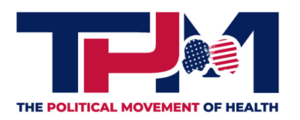Minnesota Under Fire Over Illegal Alien Tuition Giveaway

The lawsuit centers on the “North Star Promise” program, a Democrat-backed law that allows illegal immigrants to pay the same in-state tuition rates as Minnesota residents. The catch? Americans from other states are forced to pay significantly higher fees, a move the administration says flagrantly violates federal law.
Attorney General Pamela Bondi condemned the program, saying, “No state can be allowed to treat Americans like second-class citizens in their own country by offering financial benefits to illegal aliens.” She pointed to a federal statute that bars states from giving tuition perks to illegals if those same perks aren’t extended to all U.S. citizens, regardless of where they live.
Minnesota Democrats thought they found a workaround by basing the tuition benefit not on residency but on whether a student attended high school in the state. In their view, this allows them to sidestep federal law while still offering illegal immigrants a heavily subsidized education.
But critics argue the scheme is nothing more than a sleight of hand. “For Minnesota, it’s not enough to let illegal aliens—who are not permitted to live in the United States at all—into its state schools,” said FAIR general counsel Christopher J. Hajec. “Even after all that, Minnesota also lets them pay much less in tuition than the out-of-state Americans have to pay. That’s where federal law and its supremacy come in.”
The Trump Justice Department’s case highlights a broader national battle over how states treat illegal immigrants versus U.S. citizens. Under Walz, Minnesota has championed a host of benefits for illegals, ranging from free health care access to driver’s licenses, all while residents face rising taxes and crumbling infrastructure. Now, with taxpayer-funded tuition breaks in the mix, Trump’s administration is drawing a hard line.
The Federation for American Immigration Reform (FAIR), which filed a legal brief in support of the administration, stressed that Congress explicitly acted to stop states from pulling this stunt decades ago. Federal law ensures that American students—whether from New York, Texas, or Florida—cannot be forced to pay more for tuition than an illegal alien living in another state. Minnesota’s new law, FAIR argues, spits in the face of that guarantee.
The stakes aren’t just legal—they’re political. With the 2026 midterms approaching, the fight highlights the stark contrast between Trump’s America First approach and Democrat-run states’ prioritization of benefits for illegal immigrants. It’s a battle that cuts to the heart of fairness: should citizens from Ohio or Nebraska be forced to pay more for a Minnesota education than someone who isn’t legally allowed in the country?
Democrats are already bracing for backlash, but Walz’s administration insists the program is about “equity” and “opportunity.” For Trump’s team, however, the message is clear: equity doesn’t mean punishing American families while rewarding those who broke the law.
If the courts side with the Trump administration, Minnesota could be forced to scrap its law and reimburse tuition money, setting a precedent that would ripple across other blue states eyeing similar programs.
For now, the administration has planted its flag: American citizens come first, and states that try to flip that on its head will face the full weight of federal law.

